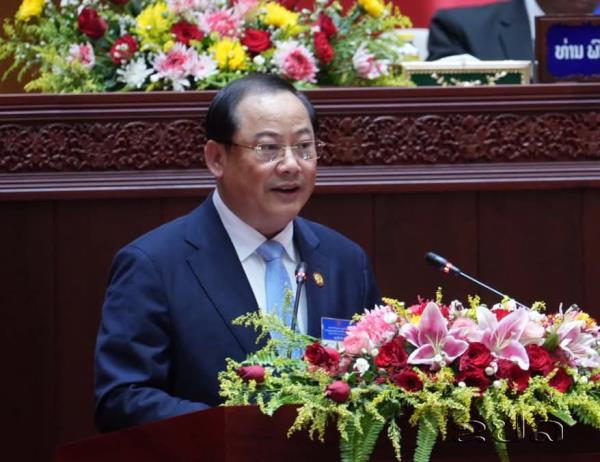KPL
In a decisive move to accelerate national economic recovery, the Lao government has unveiled a series of proactive measures aimed at curbing inflation, stabilizing the exchange rate, and strengthening the overall economy through the end of 2025.

(KPL) In a decisive move to accelerate national economic recovery, the Lao government has unveiled a series of proactive measures aimed at curbing inflation, stabilizing the exchange rate, and strengthening the overall economy through the end of 2025.
Recognizing that economic stability is essential to the well-being of its citizens, the government has set a clear goal of reducing inflation to single digits by the end of next year. To achieve this, policies will focus on boosting domestic production to meet both local consumption needs and export demands. This strategy is expected to reduce dependence on imports and help preserve valuable foreign exchange reserves.
Efforts are also underway to more effectively manage commodity prices. These include narrowing the gap between wholesale and retail prices to ensure fairer pricing for consumers and to relieve cost pressures on essential goods. Additionally, the government plans to increase national savings and expand foreign currency reserves, further supporting price and currency stability.
Speaking at the 9th General Session of the 9th National Assembly on June 11, 2025, Prime Minister Sonexay Siphandone underscored the government's commitment to addressing critical issues such as inflation, currency exchange fluctuations, electricity costs, and the prices of everyday commodities. He emphasized that the measures being taken are designed to improve the quality of life for civil servants, military personnel, police officers, and ethnic minority communities.
In a move widely welcomed by the public, the government is set to review electricity pricing for low-income households to ease the burden of rising living costs. At the same time, it will intensify efforts to modernize revenue collection and enhance operational efficiency, particularly at international border checkpoints and in the management of land revenue.
Budget discipline is another area of focus. Authorities have pledged to ensure that government spending is both efficient and frugal. The administration also reaffirmed its commitment to managing foreign debt responsibly by honoring repayment agreements and negotiating with creditors to restructure debt where necessary. A portion of the central government’s 2024 budget surplus estimated at between 500 and 800 billion kip will be allocated toward reducing outstanding debts.
Moreover, the government has stepped up its crackdown on illegal activities that threaten national resources. These include unauthorized vehicles, illegal logging, unregulated mining, and other forms of resource exploitation. A high-level committee, chaired by the Deputy Prime Minister and Director of Economic Affairs and International Cooperation, has been appointed to lead a comprehensive effort to address these issues.
These wide-ranging initiatives signal a clear and positive direction for the country. Laos is taking determined steps toward building a more resilient and sustainable economy, with a strong commitment to protecting the welfare of its people and ensuring long-term fiscal responsibility.
KPL